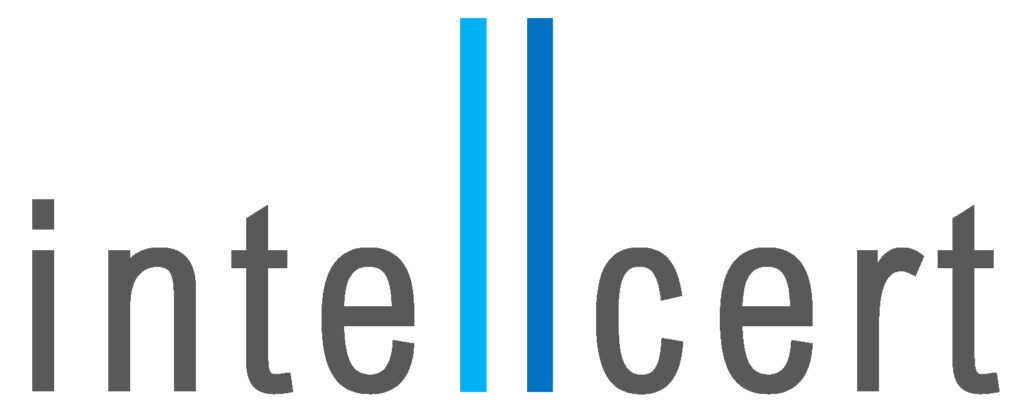Frequently Asked Questions (FAQ) about ISO 22000 Certification
What does ISO 22000 include?
ISO 22000 is an international standard for Food Safety Management Systems. It sets out the requirements that organizations must meet to ensure that their products are safe throughout the food chain. The standard covers various aspects, including:
- Organizational Context: Understanding the context and expectations of interested parties regarding food safety and responding to them.
- Leadership: Organizational leaders must demonstrate strong leadership and commitment to food safety.
- Planning: This includes setting food safety objectives and plans, as well as developing measures for risk assessment and control.
- Operation: Processes are established and implemented to ensure that food is produced, stored, and transported safely.
- Performance Evaluation: The organization must monitor, measure, analyze, and evaluate its performance in food safety.
- Improvement: Continuous improvements in food safety must be made based on assessments and analyses.
ISO 22000 aims to help organizations ensure food safety throughout the entire food chain and strengthen consumer confidence in the safety of food.
What are the objectives of a Food Safety Management System (FSMS) according to ISO 22000?
An FSMS according to ISO 22000 has several objectives:
- Ensuring Food Safety: The FSMS aims to ensure that food is safely produced, stored, transported, and handled throughout the entire food chain.
- Risk Management: The FSMS aims to help identify, assess, and control risks related to food safety to minimize potential hazards.
- Compliance with Legal Requirements: The FSMS aims to ensure that the organization meets all relevant legal and regulatory requirements in the field of food safety.
- Continuous Improvement: The FSMS aims to promote continuous improvements in food safety to ensure compliance with the requirements of the standard and continuously optimize food safety.
- Employee Engagement: Through training, communication, and involvement of employees, the FSMS aims to ensure that everyone in the organization can contribute to food safety.
- Ensuring Traceability: The FSMS aims to ensure that food and food ingredients are traceable throughout the entire supply chain, enabling quick response in case of recall or contamination.
What is the difference between ISO 22000 and FSSC 22000?
ISO 22000 and FSSC 22000 are both standards for Food Safety Management Systems, but there are some important differences between them:
- Origin and Structure: ISO 22000 is an international standard, while FSSC 22000 is based on a specific scheme recognized by the Global Food Safety Initiative (GFSI). FSSC 22000 integrates the requirements of ISO 22000 with additional provisions and is more tailored to the food industry.
- Scope: ISO 22000 is more general and can be applied by organizations in all sectors of the food industry. FSSC 22000 mainly focuses on food manufacturing and processing, making it more specific to companies in this sector.
- Certification Options: While ISO 22000 is a standalone certification, FSSC 22000 allows certification under a specific scheme that includes additional requirements for food safety systems.
- Recognition: FSSC 22000 is recognized by the Global Food Safety Initiative (GFSI), meaning it is accepted by many retailers and brands as a uniform standard. ISO 22000, on the other hand, is not directly recognized by GFSI but can still be used by organizations as evidence of food safety.
Overall, both standards provide a robust framework for ensuring food safety, but the choice between ISO 22000 and FSSC 22000 may depend on the specific requirements and goals of a company.
What is ISO 22000 certification?
ISO 22000 certification is a formal process whereby an independent certification body verifies and confirms a company’s compliance with the requirements of the ISO 22000 standard. It serves as evidence that the company’s Food Safety Management System (FSMS) conforms to internationally recognized standards and that the company actively strives for the safety of its food products.
Who needs ISO 22000 certification?
ISO 22000 certification is beneficial for organizations of any size and industry involved in the production, processing, storage, transportation, or handling of food. Particularly, companies in the food industry, including manufacturers, suppliers, retailers, and catering service providers, can benefit from certification. Certification may also be relevant for organizations operating in adjacent industries that come into contact with food, such as packaging manufacturers or cleaning companies.
How is ISO 22000 certification obtained?
To become ISO 22000 certified, an organization must go through a series of steps:
- Preparation: The organization evaluates its current food safety practices, identifies risks, and develops an FSMS.
- Implementation: The FSMS is implemented, and employees are trained and involved in food safety measures.
- Internal Audit: Before certification, the organization conducts an internal audit to ensure the effectiveness of the FSMS.
- Certification Audit: An independent certification body conducts a certification audit to verify the conformity of the FSMS with the requirements of ISO 22000.
- Certification: If the company meets all requirements, it is issued the ISO 22000 certification.
What are the benefits of ISO 22000 certification?
ISO 22000 certification offers several benefits, including:
- Enhanced Trust: ISO 22000 certification signals to customers and stakeholders that the company actively strives for the safety of its food products and adheres to international standards for food safety.
- Risk Minimization: By implementing an FSMS, organizations can identify, assess, and control risks related to food safety to minimize potential hazards.
- Compliance with Legal Requirements: ISO 22000 certification helps organizations meet legal and regulatory requirements in the field of food safety.
- Competitive Advantage: ISO 22000 certification can give a company a competitive edge by building trust with customers and partners and increasing credibility regarding food safety.
- Continuous Improvement: Implementing an FSMS according to ISO 22000 promotes continuous improvements in food safety to ensure compliance with the standard’s requirements and continuously optimize food safety.
- Access to New Markets: In many industries, ISO 22000 certification is a requirement to enter certain markets or attract new customers.
How does the ISO 22000 certification process work?
The ISO 22000 certification process involves several steps:
- Preparation: The organization prepares for certification by developing and implementing its FSMS.
- Implementation: The FSMS is implemented, and employees receive training.
- Internal Audit: The organization conducts an internal audit to ensure the effectiveness of the FSMS.
- Certification Audit Phase 1: An auditor from the certification body conducts a review of documentation and the FSMS.
- Certification Audit Phase 2: A comprehensive audit is conducted to assess the effectiveness of the FSMS in practice.
- Certification: If all requirements are met, certification is issued.
What is checked in ISO 22000?
During ISO 22000 certification, various aspects of the Food Safety Management System (FSMS) are assessed, including:
- Food Hazard Analysis: The organization must identify potential hazards that could affect food safety.
- Risk Assessment and Control: It is checked whether the organization evaluates risks related to food safety and implements appropriate measures for risk control.
- Controls and Measures: It is assessed whether the organization has implemented suitable controls and measures to ensure food safety along the food chain.
- Traceability: It is reviewed whether the organization has procedures for the traceability of food and food ingredients to quickly respond in case of recall or contamination.
- Monitoring and Review: It is checked whether the organization monitors, measures, analyzes, and evaluates its food safety measures to drive continuous improvement.
- Training and Awareness: It is reviewed whether the organization provides training and awareness programs on food safety for its employees and promotes awareness of safety risks.
How much does an ISO 22000 certification cost?
The costs of ISO 22000 certification can vary depending on the size and complexity of the organization. The costs may include the following:
- Consulting Fees: Organizations that require assistance with the development and implementation of their FSMS may incur consulting fees, adding additional costs.
- Training Costs: Training employees for the implementation and maintenance of the FSMS can incur costs.
- Certification Fees: The certification body charges fees for conducting certification audits and issuing certification.
- Internal Resources: The organization needs to allocate internal resources for the implementation and maintenance of the FSMS, which can incur additional costs.
The costs for ISO 22000 certification depend on various factors, including the size and complexity of the organization, the number of locations, and the need for consulting services. Typically, ISO 22000 certification costs range from several thousand to several tens of thousands of euros. It’s important to carefully consider the various cost components and compare offers from different certification bodies to find the best cost options.
Do I need ISO 22000 FSMS consulting?
The need for ISO 22000 FSMS consulting depends on various factors, including the existing resources and expertise within the organization, the complexity of the FSMS, and the implementation timelines. FSMS consulting can be helpful in accelerating implementation, providing expertise, and ensuring the effective and efficient functioning of the FSMS. Organizations should carefully weigh the pros and cons of consulting and decide if they require additional support.
What does a certification cycle mean?
A certification cycle for ISO 22000 typically lasts three years. During this period, the Food Safety Management System (FSMS) undergoes annual surveillance audits to ensure continued compliance with the requirements of the standard. Upon the expiration of the certification cycle, the organization must undergo a recertification audit to extend the certification for another three years.

